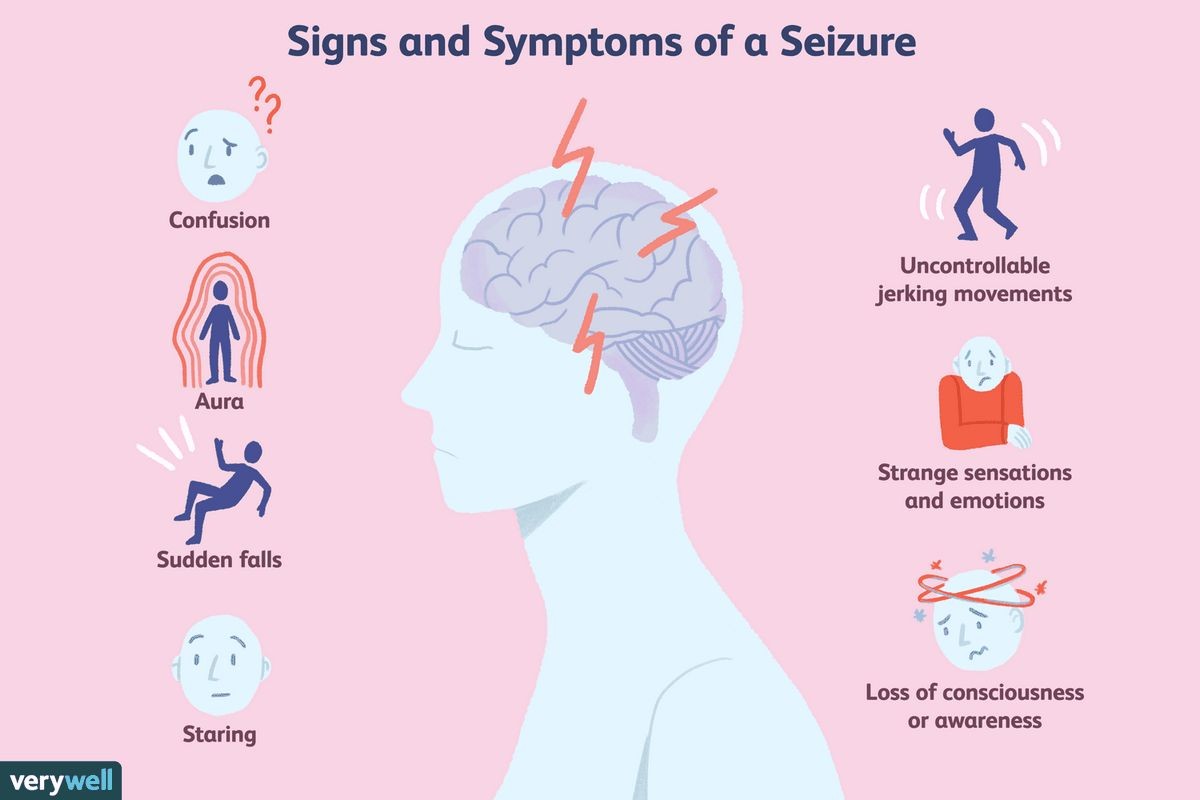
Contents
Can a Person With Epilepsy Live a Normal Life?
Epilepsy is a chronic neurological disorder caused by stroke or brain tumors. Symptoms include fainting, dizziness, muscle spasms, and twitching.
Living with epilepsy may present challenges beyond what others experience. While there is no cure, with the right therapy and knowledge about handling seizures, most people with epilepsy lead full, healthy lives.
Drugs prevent seizures for about half of patients. For 30% of patients, these drugs greatly reduce seizure frequency. For non-responsive patients, surgery may be helpful. In children, a ketogenic diet may be recommended if the medication is ineffective.
Though a normal life is possible with epilepsy, some face a higher risk of early death. This risk is higher in cases where seizures are caused by tumors or stroke. Falls or injuries during seizures can also lead to early death. Another risk is faced by those whose seizures last for five minutes or longer. This condition, status epilepticus, can occur due to a sudden stop in antiseizure medicine.
What is epilepsy?
Epilepsy is a chronic neurological disorder caused by stroke or brain tumors. Symptoms include fainting, dizziness, muscle spasms, and twitching.
Epilepsy, also known as a seizure disorder, occurs when abnormal brain activity triggers a seizure. Seizures are the primary indicator of epilepsy, lasting from a few seconds to a few minutes.
In the United States, epilepsy is a common disorder affecting the brain, regardless of age or gender. Approximately 5.1 million Americans have a history of epilepsy, with 3.4 million experiencing repeat seizure episodes.
Epilepsy affects people differently, resulting in unintentional movement on one or both sides of the body, or no movement at all. It is important to recognize the signs, symptoms, and best ways to manage this disorder.
Signs and symptoms of epilepsy
Since epilepsy is not a single disease, symptoms can vary. Seizure warning signs may include:
- Fainting
- Deja vu
- Dizziness
- Twitching
- Daydreaming
Seizure symptoms may include:
- Twitching and jerking
- Muscle spasms
- Loss of consciousness
- Staring spells
- Temporary confusion
- Unusual sensations
- Changes in mood
Doctors categorize symptoms into focal and generalized seizures based on body movement.
Symptoms of focal seizures
Focal seizures affect one part of the brain, causing twitching, weak or rigid muscles, body spasms, and repetitive movements. Other symptoms may include goosebumps, a racing heart, or changes in mood or thinking.
Symptoms of generalized seizures
Generalized seizures affect both sides of the brain, resulting in body movements similar to focal seizures, as well as spasms throughout the body. Non-motor symptoms may include staring spells or twitches in the eyelids or elsewhere.
Causes of epilepsy
In about half of all cases, the cause of epilepsy is unknown. Known causes include injury, genetic factors, neurological conditions, and infections.
Conditions like stroke and heart attacks can trigger a seizure by depriving the brain of oxygen.
Brain tumors
Brain conditions like neurofibromatosis and tuberous sclerosis complex, as well as vascular conditions and both benign and malignant brain tumors, can cause seizures.
Genetic disorders
Genetic conditions such as Down syndrome, Dravet syndrome, Unverricht-Lundborg disease, and Lafora disease can cause epilepsy. These conditions typically manifest with seizures early in life.
Neurological diseases
Neurological conditions like Alzheimer’s disease, cerebral palsy, and autism spectrum disorder can lead to epilepsy. In children, about 20% of developmental neurological conditions result in epileptic seizures.
Brain injuries
Traumatic brain injuries and other head trauma are known causes of epilepsy. Seizures can occur shortly after the injury or develop later on.
Prenatal injuries
Babies can develop epilepsy if they experience brain damage before birth. Factors such as poor nutrition, oxygen deprivation, or infection from the mother can contribute to prenatal brain damage.
Infectious diseases
Infectious diseases like HIV, meningitis, and viral encephalitis can cause epileptic seizures. Infections that directly affect the brain, such as bacterial, parasitic, and viral infections, can also lead to epilepsy.
When to see the doctor for epilepsy
If you experience a seizure along with any of the following symptoms or conditions, seek immediate medical help:
- Pregnancy
- Trouble breathing
- High fever
- Diabetes
- Seizure lasting over five minutes
- Immediate second seizure
- Injury during the seizure
Diagnosing epilepsy
Doctors diagnose epilepsy by noting symptoms and witnessing any episodes. They may order tests such as an electroencephalogram (EEG), a magnetoencephalogram (MEG), a magnetic resonance imaging (MRI) scan, or a computed tomography (CT or CAT) scan.
Blood tests can help identify infections or metabolic and genetic disorders that may be causing the seizures. Additional behavioral or neurological tests may be conducted as well.
Treatments for epilepsy
Treatment depends on the type and frequency of seizures. Anti-seizure medication is the preferred method, with one medication prescribed at a time.
Dietary changes, such as the ketogenic diet, have shown promise in reducing seizures. Other diets like Atkins and low-glycemic may also be helpful.
If medication and dietary changes are ineffective and seizures have caused significant complications, surgery may be considered.
References:
American Association of Neurological Surgeons: "Epilepsy."
Centers for Disease Control and Prevention: "Epilepsy Can Follow Traumatic Brain Injury."
Centers for Disease Control and Prevention: "Frequently Asked Questions About Epilepsy."
Centers for Disease Control and Prevention: "Epilepsy Fast Facts."
Centers for Disease Control and Prevention: "Seizure First Aid."
Epilepsy Foundation: "Warning Signs of Seizures."
Journal of Neurology, Neurosurgery & Psychiatry: "Genetics of epilepsy."
Merck Manual: "Seizure Disorders."
National Institute of Neurological Disorders and Stroke: "The Epilepsies and Seizures: Hope Through Research."
The Oncologist: "Seizure Prognosis in Brain Tumors: New Insights and Evidence-Based Management."
Epilepsy Foundation of Eastern Pennsylvania: "Living with Epilepsy."


